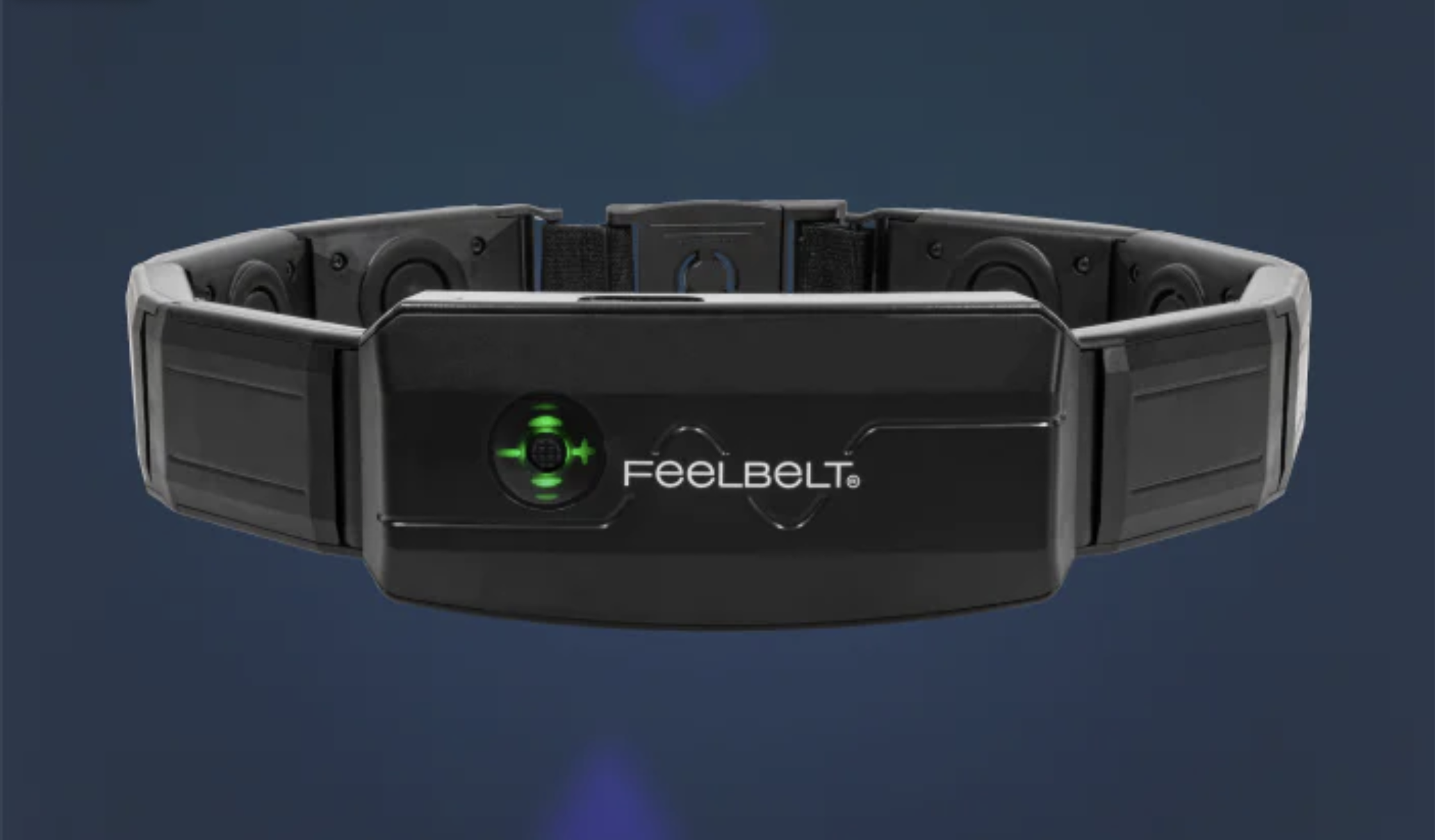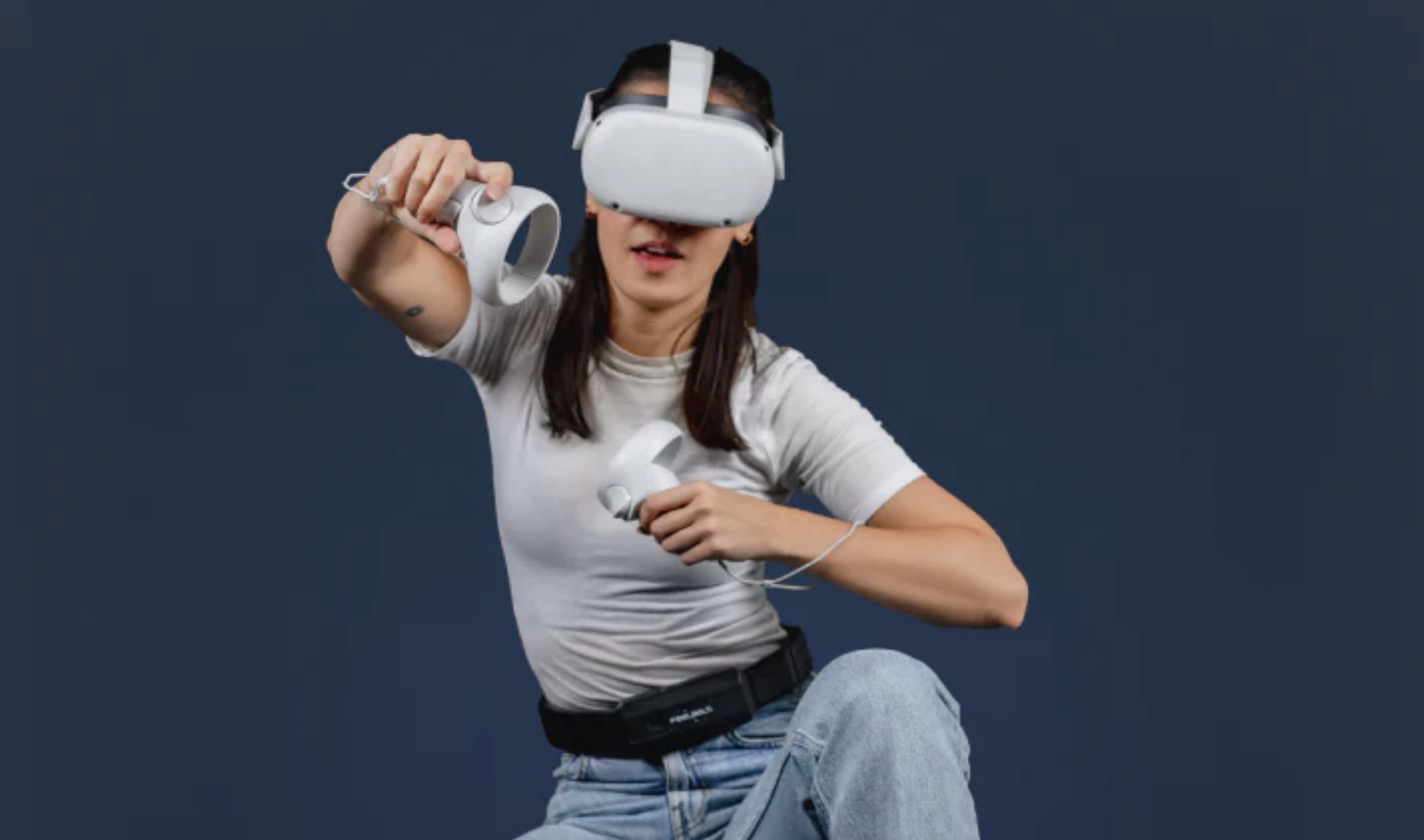All I want is to play Batman: Arkham Asylum wearing this haptic ‘Feelbelt’
A sound-enhancing belt that looks like it belongs in the Batcave

"Endure, Master Wayne. Take it. They’ll hate you for it, but that’s the point of Batman, he can be the outcast."
Thus spake Alfred Pennyworth in the 2008 movie The Dark Knight (which is the best Batman movie ever made, and this lady's not for turning on that) – voiced by the incomparable Michael Caine. But what if you could feel those words, as well as hear them; wouldn't that just blow the bloody doors off (apologies for the mixed movie references)?
Sensit! can help. The multi-brand haptics company, founded in Potsdam in 2019, has the sole aim of enhancing digital experiences through haptic feedback (vibrations, basically) by transforming telemetry, sonic and interaction data into a tangible experience.
Last year the company launched the Feelbelt via a hugely successful Kickstarter campaign, and it's now available for anyone to buy. Essentially, it's a belt that looks like something Bruce Wayne fashioned in his Batcave, but instead of field equipment and Batarangs, Sensit! has packed this wearable with haptic technology designed to enhance the audio experience for games, music, movies and VR.
Sensit! says the Feelbelt gives users "a sense of touch that complements the audio they hear."
Audio you can feel is a noble aim to help those with hearing loss – and actually, it's the natural way

Audio you can feel is hardly a new concept: see the eargasm headphones, which I really liked, the haptic vest our Computing Editor Christian Guyton really liked, and the haptic shirt our US Editor-in-Chief, Lance Ulanoff certainly didn't hate for starters – and that's just a selection of products we've written in-depth experience features on.
The thing is, a device strapped to your body that shakes to make you feel audio isn't as unnatural as it might seem at first. Why? Because in real life, humans don't just hear through our ears; we also feel sound vibrations through our body every day. Human hearing is tuned to higher frequencies for survival – the needy cries of a baby, a branch snapping in the woods – and is far less able to actually detect low frequencies. Think of any gig you've attended: we feel those sub-bass and bass vibrations more than we hear them; we're compelled to move because of them. It's a big part of what makes us dance, and why I love music.
Sign up for breaking news, reviews, opinion, top tech deals, and more.
The thing is, that way of enjoying sound doesn't typically happen with even the best headphones, due to the traditional use of an audio driver on each side of our head, and the lack of dedicated audio tech that can emulate a subwoofer system.
Sensit!'s tagline is 'Feel Every Sound', and the Feelbelt will certainly allow for free movement during wear thanks to its Bluetooth 5.0 support for connecting to consoles, smartphones and the like. I also think products such as this are likely to benefit those with hearing loss. For instance, this haptic belt covers a wide 10Hz to 20kHz frequency range, which exceeds anything humans can detect through the low end – even the best ears only start picking things up at 20Hz.
The Feelbelt is available from Sensit!'s official Feelbelt site for €199 or $249 in the US (which is around £170 or AU$330, where sold) as well as from select retailers.
Will it punch me in the gut when I mess up my combat combo in Batman: Arkham Asylum? That remains to be seen, but you either die a hero or live long enough to see yourself become the villain…
You might also like
- See our roundup of the best wireless gaming headsets
- Need something more specific? See our pick of the best PC gaming headsets
- Money tight? Check out our best budget gaming headsets guide

Becky became Audio Editor at TechRadar in 2024, but joined the team in 2022 as Senior Staff Writer, focusing on all things hi-fi. Before this, she spent three years at What Hi-Fi? testing and reviewing everything from wallet-friendly wireless earbuds to huge high-end sound systems. Prior to gaining her MA in Journalism in 2018, Becky freelanced as an arts critic alongside a 22-year career as a professional dancer and aerialist – any love of dance starts with a love of music. Becky has previously contributed to Stuff, FourFourTwo and The Stage. When not writing, she can still be found throwing shapes in a dance studio, these days with varying degrees of success.